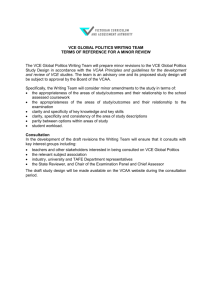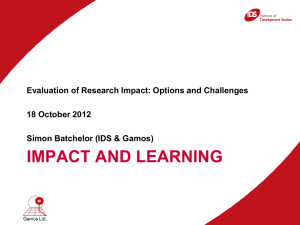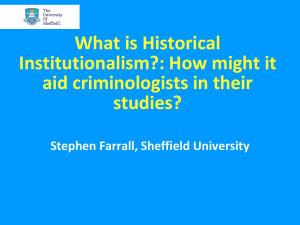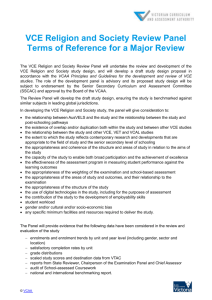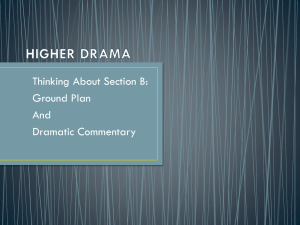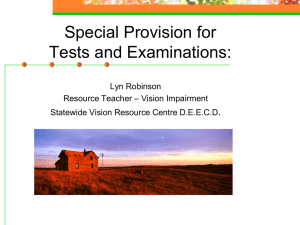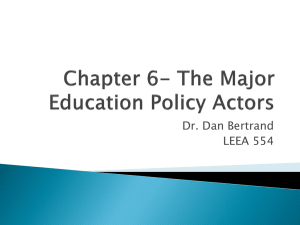Review of VCE Global Politics Units 3 and 4
advertisement
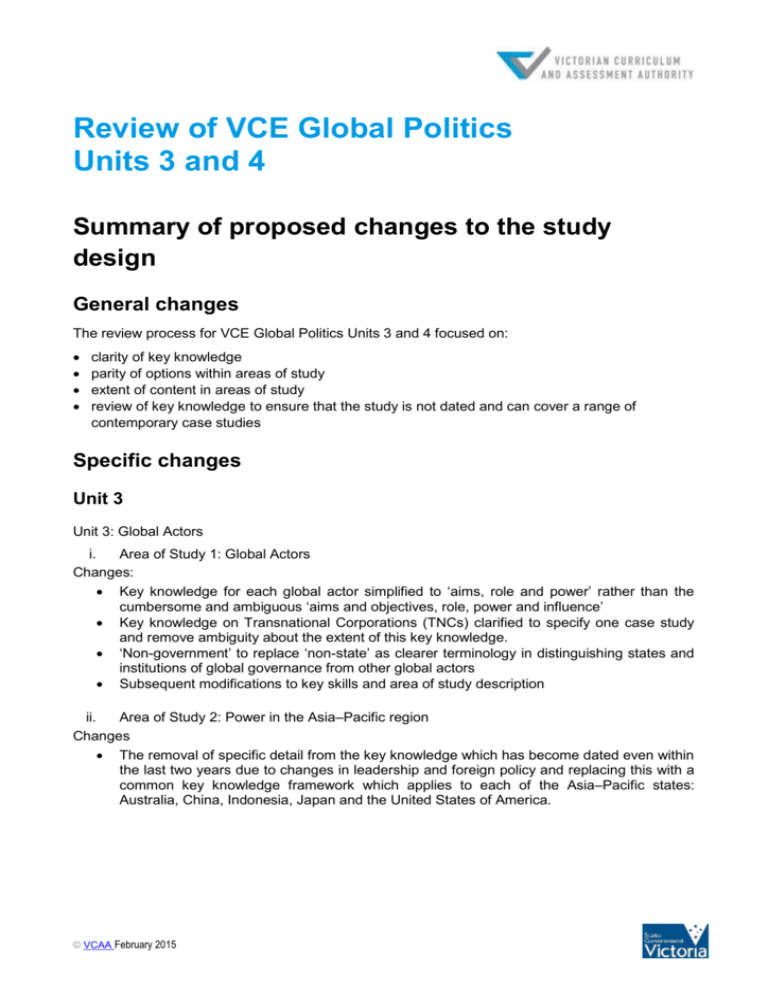
Review of VCE Global Politics Units 3 and 4 Summary of proposed changes to the study design General changes The review process for VCE Global Politics Units 3 and 4 focused on: clarity of key knowledge parity of options within areas of study extent of content in areas of study review of key knowledge to ensure that the study is not dated and can cover a range of contemporary case studies Specific changes Unit 3 Unit 3: Global Actors i. Area of Study 1: Global Actors Changes: Key knowledge for each global actor simplified to ‘aims, role and power’ rather than the cumbersome and ambiguous ‘aims and objectives, role, power and influence’ Key knowledge on Transnational Corporations (TNCs) clarified to specify one case study and remove ambiguity about the extent of this key knowledge. ‘Non-government’ to replace ‘non-state’ as clearer terminology in distinguishing states and institutions of global governance from other global actors Subsequent modifications to key skills and area of study description ii. Area of Study 2: Power in the Asia–Pacific region Changes The removal of specific detail from the key knowledge which has become dated even within the last two years due to changes in leadership and foreign policy and replacing this with a common key knowledge framework which applies to each of the Asia–Pacific states: Australia, China, Indonesia, Japan and the United States of America. © VCAA February 2015 Review of VCE Global Politics Units 3 and 4 Unit 4 Unit 4: Global challenges i. Area of Study 1: Ethical issues and debates Changes: Revision of key knowledge covering the nature and number of the ethical debates to three debates for each option. This will create greater parity and workload amongst options. ii. Area of Study 2: Global challenges Changes: Change in title from ‘Crises and responses’ to ‘Global challenges’ Review of titles of crises for clarity: ‘environmental degradation’ is now ‘climate change’, ‘intra and inter-state conflict’ is now ‘armed conflict’ and ‘state and non-state terrorism’ is now ‘terrorism’. Rewording of the fourth Key knowledge dot point to include ‘key aspects’ so that it is equivalent for each of the options. Review of numbers of ‘Key aspects’ to be covered to three per option to create parity © VCAA February 2015 Page 2 Review of VCE Global Politics Units 3 and 4 Assessment Outcome statements have been altered in two areas of study: Unit 3 Area of Study 2 and Unit 4 Area of Study 2. Unit 3 Outcome Statements Current Study Outcome Statements Consultation Draft Outcome Statements Outcome 1 On completion of this unit the student should be able to evaluate the power and influence of key global actors in the twenty-first century and assess the extent to which they achieve their aims. Outcome 1 On completion of this unit the student should be able to evaluate the power of key global actors in the twenty-first century and assess the extent to which they achieve their aims. Outcome 2 On completion of this unit the student should be able to analyse and evaluate types and forms of power as used by a specific AsiaPacific state in the region in pursuit of its national interest Outcome 2 On completion of this units the student should be able to to evaluate how effectively an AsiaPacific state uses power and foreign policy instruments within the region to achieve its national interests Total marks Marks allocated Assessment tasks 50 50 The student’s performance on each outcome should be assessed using one or more of the following formats: • a multimedia presentation • a case study • an essay • a report • a test • structured questions • short answer questions an extended response . 100 *School-assessed Coursework for Unit 3 contributes 50 per cent. Unit 4 Outcome Statements Current Study Outcome Statements Consultation Draft Outcome Statements Outcome 1 On completion of this unit the student should be able to analyse two global political issues from a range of perspectives and evaluate the effectiveness of global actors’ responses to these issues Outcome 1 On completion of this unit the student should be able to analyse two global political issues from a range of perspectives and evaluate the effectiveness of global actors’ responses to these issues Outcome 2 On completion of this unit the student should be able to explain the characteristics of two contemporary global crises and evaluate the effectiveness of responses to these. Outcome 2 On completion of this unit the student should be able to explain the characteristics of two contemporary global challenges and evaluate the effectiveness of responses to these. Total marks *School-assessed Coursework for Unit 4 contributes 50 per cent. © VCAA February 2015 Page 3 Marks allocated 50 50 Assessment tasks The student’s performance on each outcome should be assessed using one or more of the following formats: a multimedia presentation • a case study • an essay • a report • a test • structured questions • short answer questions an extended response . 100
